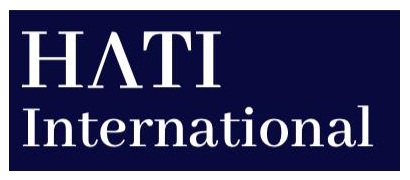Why Your Specialty Hospital Needs a Specific EHR (and Not a Generic One)
The benefits of adopting EHRs by hospitals is a well-known and well-discussed subject, but in-spite of the benefits and the availability of EHR systems for many years now, its adoption and usage are found to vary widely across countries. Interestingly, hospitals and physicians that use EHRs systems meaningfully is much lower than those that have adopted it. The low rates of meaningful utilization prevent the efforts of countries and their governments in achieving their goals of quality health care. Studies show that physicians are resistant to use EHRs due to high initial investment costs, high initial time to set up and learn the system, lack of initiative to switch from existing paper-based systems, and most importantly because general purpose EHRs have a “one-size fits all” approach.
According to surveys and studies conducted by leading health partners, it was found that specialty physicians were highly dissatisfied with the general purpose EHR software, mainly due to the fact that the general purpose EHR solutions cannot cater to the requirements of their particular specialty. A solution that works well for a general practitioner may necessarily not work well for a dentist or an oncologist, or a physiotherapist. An EHR is expected to automate and streamline the clinician’s workflow. But the documentation workflow of these specialists is vastly different from that of general practitioners. EHRs that cater to specialty hospitals have various special features and advantages over generic EHRs.
For example, not all patients who visit a general practitioner’s clinic will carry X-Rays or charts, but every other patient that walks into a dental clinic will carry periodontal charts or X-rays. Hence, dental professionals require advanced charting and imaging tools to be part of their EHR documentation workflow in order to do their job effectively and efficiently.
Similarly, an IVF EHR would consist of different modules that are designed for different departments within a Medical practice, such as Single Screen ART Dashboard allowing doctors to capture the entire clinical data and treatment cycles on a single screen, execution calendar for managing schedules of crucial events, drug administration interface for sending SMS/Email to patients, comprehensive embryology management, and so on, with centralized access and better control.
An oncologist would require workflows for setting up radiation or chemotherapy treatment sessions, TNM staging, annotation tools, OP Assessment tools, and easy access to PACS Imaging, Billing, and Patient Demographics.
Such specialized EHRs capture, store, and allow sharing of relevant extracts of patients’ longitudinal electronic health records across more than one healthcare organization or even across multiple healthcare settings when required.
Making specialists to use generic EHRs gives rise to frustration, decreases their productivity, increases risks, and negatively affects patient care. Due to these reasons, many of these specialists are reverting to documenting on paper, which is only aggravating the problem. In addition to adding errors, extensive use of paper documentation slows down the treatment process of patients, largely because the patient’s healthcare records are not readily available and accessible to all the healthcare professionals who are treating the patients. This results in a deviation from the very goal of an electronic health care system, which is to make the patient’s healthcare records easily accessible and facilitate better care.
An effective solution, therefore, would be to integrate a hospital’s EHR solution with specialty-specific EMR software. This method empowers specialty practitioners to complete their documentation the way they would want to and allows them to focus on providing better patient care, reduce errors, and achieve more accurate results in the shortest possible time. It ensures greater adherence to documentation standards, helps improve risk management, collaborates and coordinates patient care efficiently, enhances patient satisfaction and outcomes, and reduce non-emergency after hours calls.
Another benefit of specialty EHRs is that these specialist doctors have workflows and templates customized to their discipline so that they can streamline data entry, while they can leave out unnecessary features, and streamline updates. All these factors lead to better care given to patients.
For example, an EHR designed for a pediatrician has easy access to immunization charts, growth charts, assessment notes, and follow-up information for the child as he grows into adulthood.
For cardiologists, it is helpful if ready reckoners are built into the software will make ensure that each patient’s complete family medical history is recorded, which is extremely important for accurate diagnosis and treatment.
A big advantage of specialized EHRs is that fewer customizations are required for users to take complete advantage of its powerful features. This results in hundreds of man-hours saved, which can be redirected to updating the product to maintain compliance with the regulation.
Conclusion
It is pointless to use a generic EHR solution for specialty patient care. Specialty EHR software definitely helps improves patient outcomes, achieve better results, and increase the revenue potential.
<!– 1527935848543 –>



